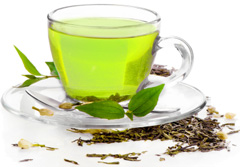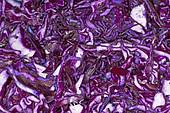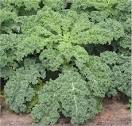 One of the greatest gifts bestowed on mankind is the gift of sight. The ability to see your loved ones, your surroundings, nature in all its glory and the heavens with the stars at night is a benefit to be cherished. The key to good eyesight is “central vision” which is essential for reading, driving and watching TV, in addition to helping you see details, colours and shapes, clearly. All the action for central vision takes place in a spot on the retina called the macular and this is one of the first areas to weaken as you age. In fact, macular degeneration is the leading cause of blindness in elderly people. The main reason for this degeneration is that your eyes have been starved of particular nutrients over a long period of time and as a consequence no longer function optimally. Other reasons for this degeneration are poor circulation, atherosclerosis and exposure to electromagnetic fields through heavy computer use. It is generally accepted that half of all cases of blindness, from whatever cause, can be prevented. The leading causes being macular degeneration, cataracts (the leading cause of blindness in the world) and glaucoma. Cataracts, which normally affect those over 40 years old, can affect one or both eyes and are caused either by poor circulation, poor nutrition or a decrease in the fluid surrounding the lens, so proper hydration is important. Other factors for cataracts are diabetes, steroids, tranquilizers, diuretics, HRT, smoking and heavy metal toxicity. Cataracts cause the lens of the eye to become foggy preventing light from getting in. Glaucoma, like cataracts, cause gradual loss of eyesight, initially affecting peripheral vision, similar to the wearing of blinkers by horses. Glaucoma can also be hereditary and sometimes manifests itself by headaches, eye pain, redness in the eyes, and an abnormally wide pupil.
One of the greatest gifts bestowed on mankind is the gift of sight. The ability to see your loved ones, your surroundings, nature in all its glory and the heavens with the stars at night is a benefit to be cherished. The key to good eyesight is “central vision” which is essential for reading, driving and watching TV, in addition to helping you see details, colours and shapes, clearly. All the action for central vision takes place in a spot on the retina called the macular and this is one of the first areas to weaken as you age. In fact, macular degeneration is the leading cause of blindness in elderly people. The main reason for this degeneration is that your eyes have been starved of particular nutrients over a long period of time and as a consequence no longer function optimally. Other reasons for this degeneration are poor circulation, atherosclerosis and exposure to electromagnetic fields through heavy computer use. It is generally accepted that half of all cases of blindness, from whatever cause, can be prevented. The leading causes being macular degeneration, cataracts (the leading cause of blindness in the world) and glaucoma. Cataracts, which normally affect those over 40 years old, can affect one or both eyes and are caused either by poor circulation, poor nutrition or a decrease in the fluid surrounding the lens, so proper hydration is important. Other factors for cataracts are diabetes, steroids, tranquilizers, diuretics, HRT, smoking and heavy metal toxicity. Cataracts cause the lens of the eye to become foggy preventing light from getting in. Glaucoma, like cataracts, cause gradual loss of eyesight, initially affecting peripheral vision, similar to the wearing of blinkers by horses. Glaucoma can also be hereditary and sometimes manifests itself by headaches, eye pain, redness in the eyes, and an abnormally wide pupil.
Conventional treatments for eye disorders include surgery and drug therapy but surgery is generally used for cataracts and glaucoma. Both surgery and drug therapy can produce serious side effects and sometimes don’t guarantee a cure, but these are not the only options. Some natural solutions have been found to be quite effective in correcting eye problems in a relatively short period of time and without the adverse side effects associated with conventional treatments. Nutrition is the key to dealing with health problems including those related to the eyes, as the eyes are dependent upon the rest of the body for nourishment. For example, the eyes depend on the liver, kidneys and the circulatory system to eliminate toxins from the blood stream and deliver nutrients for good eye health. Detoxing the liver can benefit the eyes tremendously by removing heavy metals from the system. The vitamins, minerals and herbs associated with healthy eyes are vitamins A , C, D and E, zinc, selenium, cinnamon, garlic and coriander. Beet, grapefruit, cabbage, green tea, cabbage, olive oil, spinach, leafy green vegetables and citrus fruits are all associated with liver detoxification in addition to overall good health. There is a saying that the “eyes are the windows to the soul” meaning that whatever is going on inside a person shows itself in the eyes. This normally refers to thoughts and emotions. If we progress this a bit further and say “the eyes are the windows to the soul and your general health” we begin to understand why the doctor peers into your eyes when you visit the surgery. In addition to eye specific issues like glaucoma, cataracts and macular degeneration your eyes tell whether you have high blood pressure, diabetes, high cholesterol, brain tumours, lupus, rheumatoid arthritis and a host of other illnesses.
The best nutrients used to prevent or stop loss of vision are lutein, beta-carotene, zeaxanthin, antioxidants and fish oil. Thinning the bile is also a major key to eye health as it will help more lutein get into the macula. Eye health reacts quickly to nutrition. Healthy food in, means good eyesight. unhealthy food in, means cataracts and macular degeneration. Natural cures for cataracts include garlic, raw vegetables, spinach, green tea, and vitamin C. You should also eliminate sugar and refined carbohydrates from your diet
Lutein and zeaxanthin are powerful antioxidants which are found in many vegetables and are highly concentrated in the eyes, including the lens, macular and retina. They protect the eyes from high energy light rays such as some ultra violet rays from the sun. One study found that people who eat foods that are high in zeaxanthin (kale, broccoli and spinach) are up to 50% less likely to develop cataracts. Incidentally, there is a test called “macular pigment optical density” which can measure levels of lutein and zeaxanthin in eye tissue. It has also been established that lutein and zeaxanthin from eggs is more readily absorbed by the body than that obtained from vegetables, due to the fats contained in eggs.
Lutein and Zeaxanthin Foods
Food Serving mg
Kale (cooked) 1 cup = 23.7 mg
Spinach (cooked) 1 cup = 20.4 mg
Collards (cooked) 1 cup = 14.6 mg
Turnip greens (cooked) 1 cup = 12.2 mg
Spinach (raw) 1 cup = 3.7 mg
Green Peas (canned) 1 cup = 2.2 mg
Corn (canned) 1 cup = 2.2 mg
Broccoli (cooked) 1 cup =1.7 mg
Romaine lettuce (raw) 1 cup = 1.3 mg
Carrots (cooked) 1 cup = 1.1 mg
Green beans (cooked) 1 cup = 0.8 mg
Eggs 2 (large) 0.3 mg
Source: USDA National Nutrient Database for Standard Reference, Release 22 (2009)
Regular consumption of avocados can lead to improved vision. The reason for this is that avocados contain an abundance of three nutrients that support the tissues that make up your eyes. These nutrients are lutein, vitamin C and vitamin E. Although lutein comes from other foods like greens and eggs, that from the avocado comes packed with a large quantity of healthy monounsaturated fatty acids, which help ensure optimal absorption into the blood stream. Avocados help reduce the risk of cataracts and macular degeneration (gradual loss of eyesight), which is the leading cause of blindness in elderly people and is often marked by loss of central vision. One of the most powerful antioxidants is glutathione which the body produces itself and avocados help the body in this regard. Research has also shown that cataract lens contain only about one tenth of the glutathione as normal lens. Apart from lutein the best nutrients to prevent or stop loss of vision are beta-carotene, fish oil, zeaxanthin and anti-oxidants.
Kale is considered to be the best of all the dark green vegetables and is recommended for eye maintenance due to its very high zinc content. Kale is also packed with lutein and zeaxanthin.
Lycopene from tomatoes is a powerful antioxidant which becomes active when cooked and reduces macular degeneration. Add some black pepper, chilli or cayenne pepper to your tomatoes as these not only improve the absorption of the lycopene but help with your circulation, thus getting the nutrients to the far reaches of the body.
Beta carotene (orange coloured variety of sweet potato) converts into vitamin A in the body and benefits the retina
Kidney beans are full of zinc which helps with the absorption of vitamin A. Remember that another name for vitamin A is retinol because of its importance with regard to the retina in the eye. Also remember that the prostate gland (men only) is the only organ in the body that has a higher concentration of zinc than the retina.
Red peppers contain vitamin C which decreases the risk of developing cataracts but be careful with peppers if you suffer from arthritis as this member of the “nightshade” family contains alkaloids that may trigger an arthritic flare. Other members of this family include aubergine, tomatoes and potato (not sweet potato).
Failing night vision can be a sign of vascular problems due to poor circulation but could also be a symptom of parasites in the intestines and a lack of proper absorption of essential minerals and vitamins. The acidity levels of blood can affect the way your eyes work, especially if your pH becomes too acidic. Too much acid in the blood (acidosis) stems from either the food you eat or under- performing liver and kidneys. Absorption is important so a good balance in gut flora (good bacteria vs. bad bacteria) is essential as this helps with absorption. Certain vegetables and fruits are also good sources of soluble fibre which helps with absorption. These include sweet potato, pumpkin, bananas (both ripe and green), lentils, broccoli, spinach, Brussel sprouts, pears and avocados. Coconut oil is by far the best oil to assist the body with absorption among other things.
 To further protect your eyes in these computerised times it is essential to take breaks when using computers. If you cannot take regular breaks then try looking away from the screen from time to time. This can prevent you from suffering from eye strain, blurred vision, dry eyes, headaches, neck, back and shoulder pains and trouble focusing at a distance. Below is a simple natural formula for cataracts.
To further protect your eyes in these computerised times it is essential to take breaks when using computers. If you cannot take regular breaks then try looking away from the screen from time to time. This can prevent you from suffering from eye strain, blurred vision, dry eyes, headaches, neck, back and shoulder pains and trouble focusing at a distance. Below is a simple natural formula for cataracts.
Put 10 grams of white onion juice, 50 grams of honey, 10 grams of lemon juice and 10 grams of ginger. Mix properly then transfer to a clean bottle. Do not dilute. Apply two drops to each eye and use twice or three times daily. SAVE YOUR VISION AND YOUR INDEPENDENCE.
